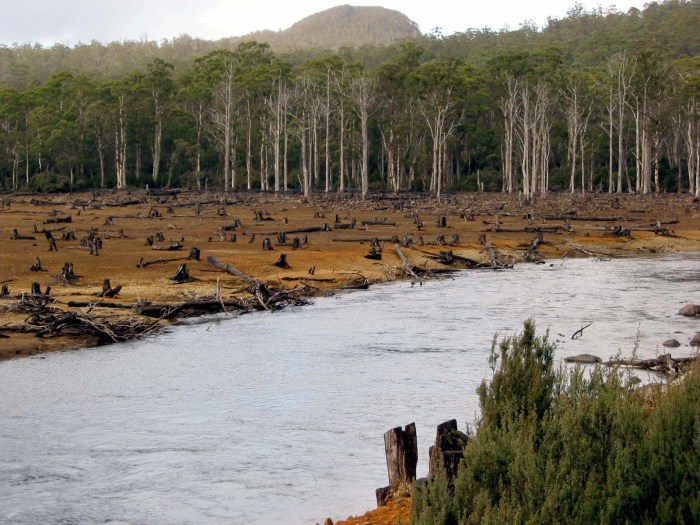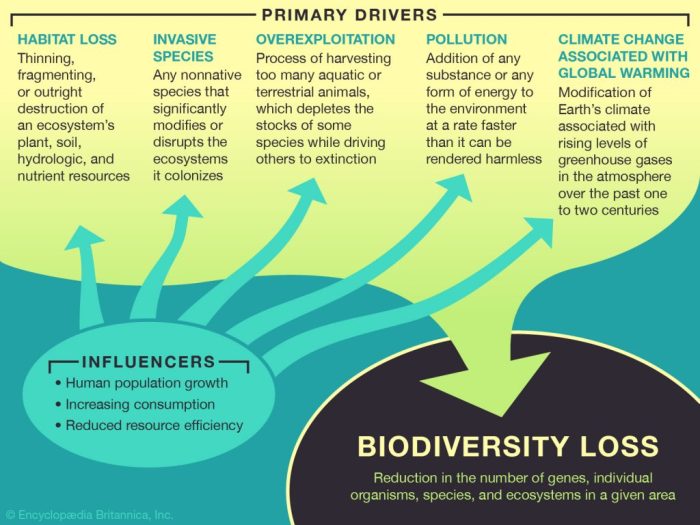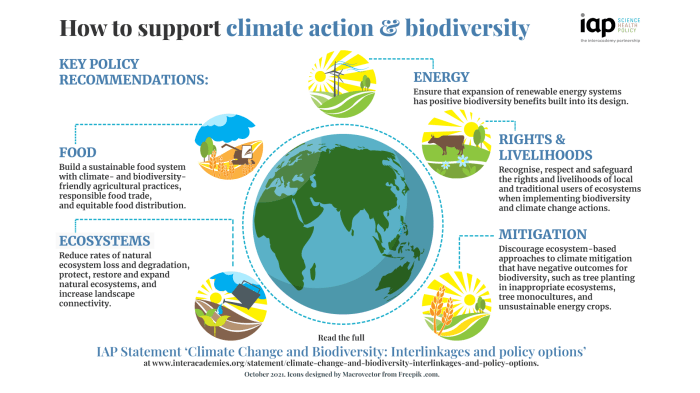How water loss affects biodiversity readworks answer key – The title, “How Water Loss Affects Biodiversity: Readworks Answer Key,” introduces a compelling exploration of the profound consequences water scarcity has on the intricate tapestry of life on Earth. This comprehensive guide delves into the mechanisms by which water loss disrupts ecosystems, fragments habitats, intensifies inter-species competition, and jeopardizes vital ecosystem services.
As we journey through this analysis, we will uncover the ripple effects of water loss on plant and animal life, examining specific ecosystems that have borne the brunt of this environmental crisis. We will also investigate the long-term implications for biodiversity and the delicate balance that sustains our planet.
Water Loss Affects Biodiversity: How Water Loss Affects Biodiversity Readworks Answer Key

Water is essential for all life on Earth. It is a vital resource for plants, animals, and humans alike. When water becomes scarce, it can have a devastating impact on biodiversity.
Water Scarcity Impacts on Ecosystems
Water scarcity can affect plant and animal life in a number of ways. Plants need water to grow and reproduce. When water is scarce, plants may not be able to get the water they need to survive. This can lead to stunted growth, reduced reproduction, and even death.
Animals also need water to survive. They need water to drink, to regulate their body temperature, and to reproduce. When water is scarce, animals may not be able to get the water they need to survive. This can lead to dehydration, starvation, and death.
Water scarcity can also have a long-term impact on biodiversity. When plants and animals die off due to water scarcity, it can create a ripple effect throughout the ecosystem. For example, the loss of plants can lead to a decrease in the number of insects that rely on those plants for food.
This, in turn, can lead to a decrease in the number of birds that rely on those insects for food. Ultimately, water scarcity can lead to a decline in the overall biodiversity of an ecosystem.
Water Loss and Habitat Fragmentation
Water scarcity can also lead to habitat fragmentation. Habitat fragmentation occurs when a large habitat is divided into smaller and smaller pieces. This can happen due to a number of factors, including the construction of roads, dams, and canals. When habitat is fragmented, it can make it difficult for plants and animals to move around and find food and shelter.
This can lead to a decline in the number of species that can live in a fragmented habitat.
Habitat fragmentation can also have a negative impact on the genetic diversity of a population. When a population is fragmented, it can become more difficult for individuals to mate with each other. This can lead to a decrease in the genetic diversity of the population, which can make it more vulnerable to disease and other threats.
Water Scarcity and Inter-Species Competition
Water scarcity can also intensify competition for resources among species. When water is scarce, plants and animals may have to compete more intensely for the limited resources that are available. This can lead to a decrease in the number of species that can coexist in an ecosystem.
For example, in the African savanna, lions and hyenas compete for the same food sources. When water is scarce, lions and hyenas may have to compete more intensely for food. This can lead to a decrease in the number of lions and hyenas that can survive in the savanna.
Water Loss and Ecosystem Services, How water loss affects biodiversity readworks answer key
Water scarcity can also disrupt ecosystem services. Ecosystem services are the benefits that humans receive from the natural environment. These services include water purification, pollination, and carbon sequestration. When water is scarce, it can disrupt these services and impact human well-being.
For example, water scarcity can lead to a decrease in the amount of water available for drinking, irrigation, and other purposes. This can have a negative impact on human health and economic development. Water scarcity can also lead to a decrease in the amount of water available for wetlands.
Wetlands are important for filtering water, providing habitat for fish and wildlife, and storing carbon. When wetlands are lost due to water scarcity, it can have a negative impact on water quality, biodiversity, and climate change.
FAQ
How does water loss affect plant life?
Water scarcity can stunt plant growth, reduce photosynthesis, and increase susceptibility to pests and diseases, ultimately leading to vegetation loss and ecosystem degradation.
What is habitat fragmentation?
Habitat fragmentation occurs when water loss divides continuous habitats into smaller, isolated patches, disrupting species movement and genetic exchange.
How does water scarcity intensify inter-species competition?
As water becomes scarce, species must compete more aggressively for limited resources, potentially leading to displacement or even extinction of less adaptable species.
What ecosystem services are dependent on water availability?
Water is essential for ecosystem services such as water purification, pollination, carbon sequestration, and nutrient cycling, which are crucial for human well-being and the health of the planet.


